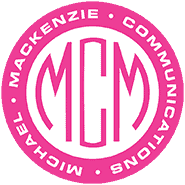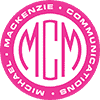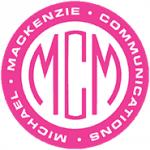As we already know, AI continues to be on the rise and isn’t going anywhere. Instead of fighting an uphill battle, consider the partnership that could be forged and the collaboration that could take place. Even though AI can streamline processes and enhance certain functions to be more effective and efficient, it’s important to remember what human beings bring to the table—namely, soft skills. That’s exactly why working together is so important: when we combine the strengths of AI with the emotional intelligence, creativity and adaptability of people, we create smarter, more balanced solutions. Which begs the question, what makes humans irreplaceable?
What Are Soft Skills and Why Do They Matter in A Technology-Centered Workplace?
Unlike hard technical skills, soft skills are personal in nature—they reflect our ability to connect, communicate and navigate the human side of work. These skills are uniquely human and require a level of emotional depth and awareness that technology simply can’t duplicate. In a world that can often feel divided or disconnected, soft skills help us build bridges, foster understanding, and bring the human touch that’s essential in any workplace.
Examples of core soft skills include:
- Effective communication – expressing ideas clearly and listening with empathy.
- Empathy – tuning into others’ emotions and perspectives.
- Critical thinking – analyzing situations thoughtfully and making sound decisions.
- Emotional intelligence – recognizing and managing emotions—both our own and others’.
- Creativity – approaching challenges with imagination and innovation.
These aren’t just nice-to-have traits—they’re the foundation of meaningful collaboration, leadership, and trust in a tech-driven world. Soft skills are what make humans irreplaceable.
Human-AI Collaboration in Action:
Today’s workplace is increasingly shaped by the synergy between human insight and artificial intelligence. Rather than replace people, AI is becoming a powerful partner— able to handle data-heavy tasks, automation of workflows, and provide insights that help humans make better decisions. However, while AI excels at speed and scalability, it lacks emotional intelligence, ethical reasoning, and perspective that only humans can provide.
Here Are Some Examples of Human-AI Collaboration in Action:
- Customer support: Chatbots handle FAQs, while human agents step in for complex or emotionally sensitive issues—requiring patience, active listening, and conflict resolution.
- Recruiting: AI filters resumes and predicts job fit, but human recruiters assess personality, emotional intelligence, and team compatibility.
- Creative work: AI generates drafts, designs or music, but human creators refine tone, meaning and emotional resonance.
- Marketing: AI analyzes consumer behavior and automates campaign delivery, but marketers craft messaging, build brand voice and connect emotionally with audiences—skills rooted in empathy, storytelling, and cultural awareness.
Soft skills like empathy, communication, emotional intelligence, creativity and critical thinking are what make the collaboration meaningful. AI may provide the data, but humans provide the context. This partnership allows organizations to scale efficiency while preserving the human touch that builds trust, connection and innovation.
The Future of Work Depends on Partnership
The evolving workplace isn’t just about automation or digital transformation—it’s about collaboration between humans and technology. As AI continues to reshape industries, the most successful organizations will be those that foster a partnership between technical innovation and human insight. This means valuing not only what machines can do, but also what people bring to the table. The future of work will demand hybrid skill sets, where soft skills complement hard technical abilities to solve complex problems, lead diverse teams, and navigate change. It’s not a question of choosing between human or machine—it’s about designing systems, cultures, and careers where both thrive together.
Remember –Soft Skills in a Hard Tech World isn’t just a catchy phrase—it’s a call to action for leaders to recognize the irreplaceable value of human perspective and insight, including soft skills that build trust, inspire teams and drive innovation. As technology continues to evolve, the workplace won’t be defined by technology alone—it will be shaped by how well we lead with human insight at the center.
This blog is courtesy of MMC Office & Accounting Manager Liz Dean.



